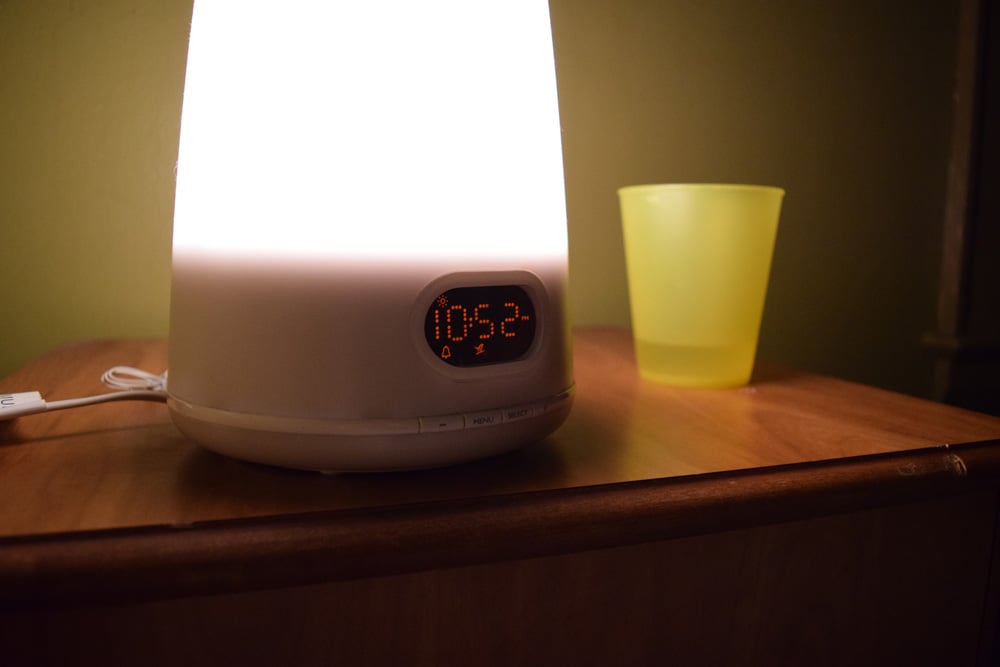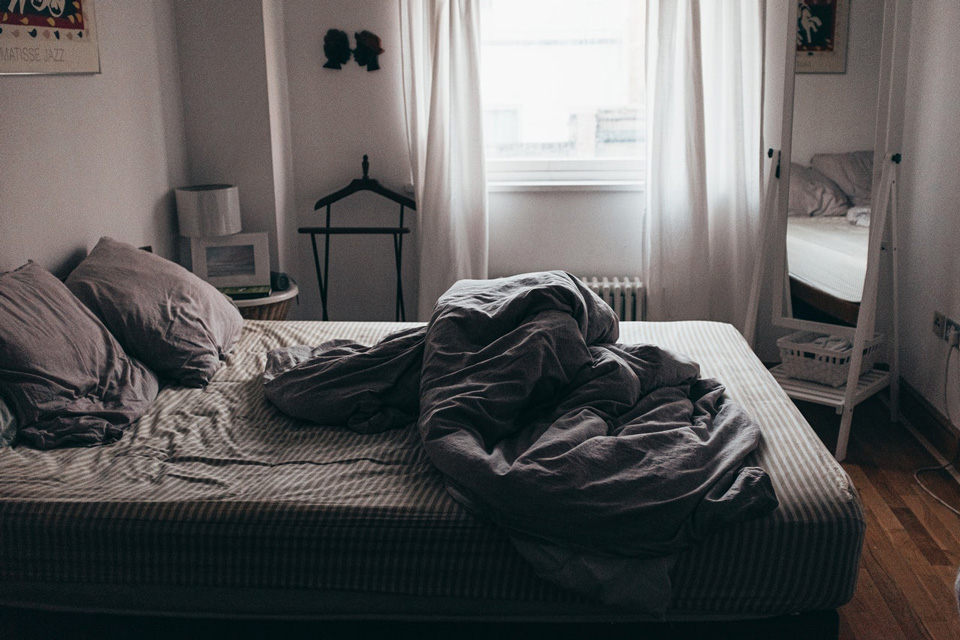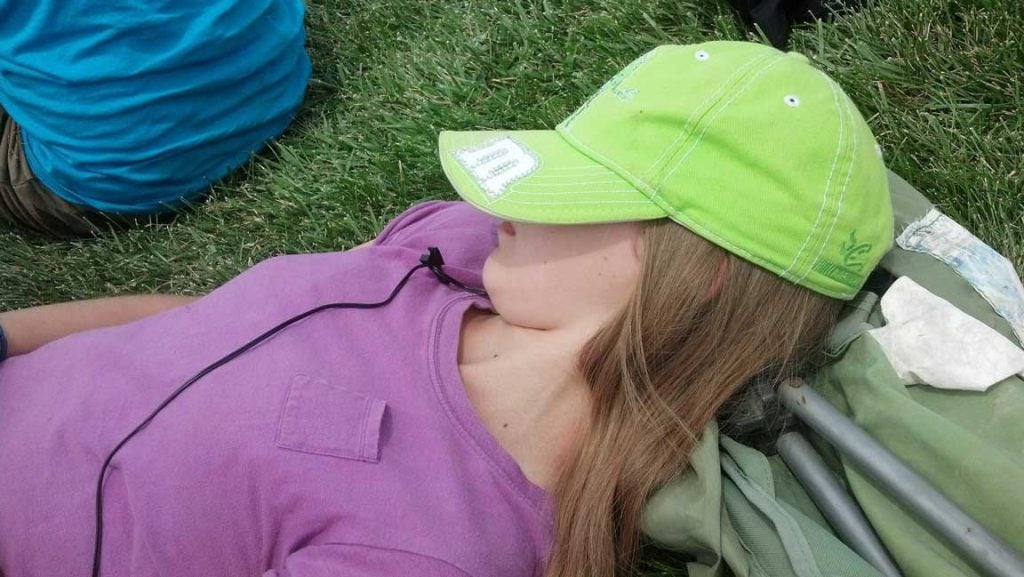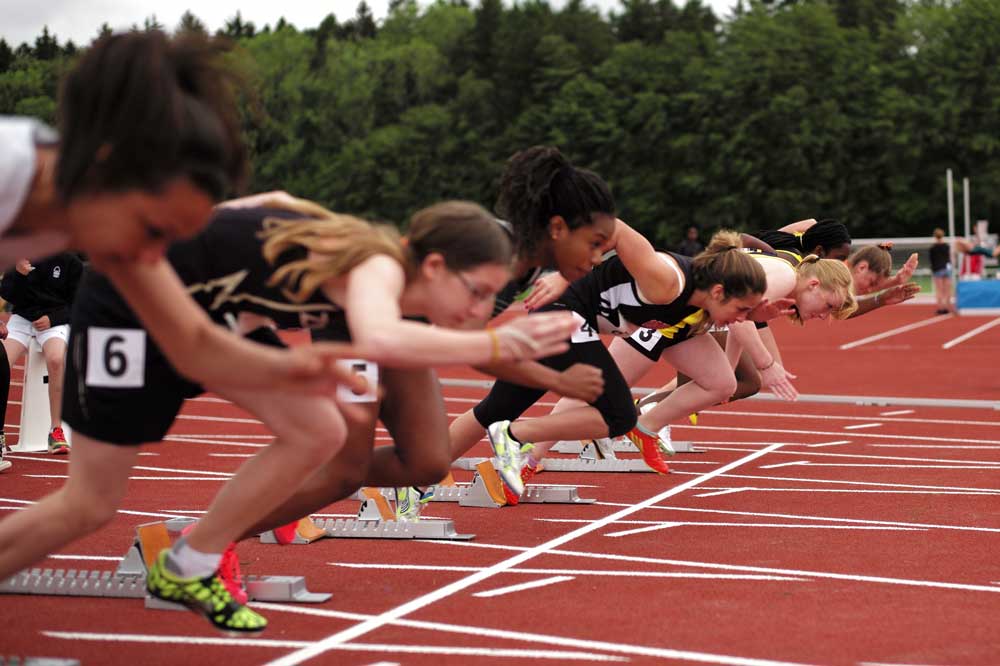It’s no secret that regardless of your age or what you have going on in your life, everybody needs a good night’s rest. However, this is especially true for youth athletes and those training for an important game or competition.
There are many benefits to getting enough sleep in relation to sports performance, such as improving accuracy, speed, and reaction time – all factors that could make or break winning a game. Simply put, if you don’t get enough sleep, then you can’t play well.
Most people agree that getting enough sleep is an integral part of overall health and wellbeing, but it is critical for children and adolescents as they are in their most important stage of mental and physical development. Making sleep a priority early on in life and developing routines can truly pay off for health, wellness and performance in the long term.
In a sleep study that WebMD shared, doctors tracked a college basketball team for several months during their season, after encouraging its players to sleep for two more per night. By the end of the study, players were quicker on their feet, felt happier, improved their speed by five percent and their free throws were more accurate. These results can also apply to football players, soccer players, and track and field athletes.
Making the changes necessary to get enough sleep takes a lot of willpower, however, especially considering all the technology and distractions that we are exposed to in our everyday lives. In this article we are going to break down: the types of sleep/resting periods; how to create an environment that encourages restful sleep; how to get enough sleep while travelling; and how much sleep is necessary to perform well in sports.
The Standard Amount of Sleep for Youth Athletes
It’s a common assumption that most people need between 7-9 hours of sleep per night to perform at an optimum level. However, athletes may require more than that since they tend to push their bodies to the limit in training. Just as they are consuming and burning off more calories, they need to sleep more, too.
According to the American Academy of Sleep Medicine (AASM), toddlers aged between 1-5 years old need an average of 10-14 hours of sleep per day- which is why many of them take afternoon naps. Children ages 6-12 need 9-12 hours a day to maintain good grades and their happiness while teenagers 13-18 years old should get 8-10 hours a day.

Different Types of Sleep
People go through five different stages of sleep, four of them being in the non-REM (rapid eye movement) stage and then the REM cycle, which is considered the normal part of the sleeping process.
In the first four stages of NREM sleep, people tend to be in a relaxed state, falling into a deep sleep. This is the time when muscles are restored, wounds are healed, white blood cells are formed to help defend against the body’s toxins and growth hormones are released. The REM stage on the other hand, is where the brain becomes more active, almost like it’s awake. The body may be resting, but the brain is awake and it starts to process memories which can be translated into forming new skills (and where dreaming occurs).
Both types of sleep are equally as important, although some scientists suggest that NREM is better for adults, as they do not need that REM sleep stimulation after childhood. However, some think that the body might go between both sleep cycles to remain somewhat aware of its surroundings, or keep the brain from being inactive for too long. A person generally alternates between the NREM and REM sleep cycles intermittently throughout the night, spending around 90 minutes in each zone.
Did you know? Even animals go between NREM and REM sleep. Sleephabits.net shared that songbirds have been proven to practice new mating calls in their sleep, which they most likely heard while they were awake. Ever seen a dog kicking its legs and ‘woofing’ like it’s running after the UPS truck? Your furry friend is most likely in a REM state.
The Best Environment for Sleep
Getting enough sleep is becoming harder for many people, as our lives get busier and we begin to feel like we have too much to do and not enough time. It’s easy to lie awake worrying about the future, going back over the day in our heads, getting worked up about the next day’s big game, or something else that keeps us from falling into the all important deep NREM sleep cycle.
However, there are some things that you (or your youth athlete) can do to help you fall asleep easier and get better sleep once you’re out.

- Darken your room with heavy curtains or blinds: Controlling the light filtration that comes into your room can trick your brain into thinking that it’s time to go to sleep, and help you tune out what’s going on in the outside world.
- Upgrade your bedding: A cozy duvet, supportive mattress, and plump pillows can be all it takes to make your bed a more inviting place and help you fall fast asleep once you get there.
- Don’t use electronics for at least an hour before bedtime: Our smart phones, TVs, and laptop computers keep our brain awake and active, and our bodies need time to wind down. Therefore, keep your technology use to a minimum if you’re trying to get a good night’s rest.
- Keep the room temperature between 60-67 degrees Fahrenheit: While there’s no strict rule on what the best room temperature for sleep is, most people prefer to drift off while the sleeping climate is on the chillier side, but not freezing cold. As Dr. Ajay Sampat says in this Self article, “In general, keeping a cooler room is helpful because your body’s natural core temperature decreases throughout sleep. If you have a cooler environment, it facilitates that transition”. If you can’t control your room temperature, consider investing in different bedding, using a fan, or buying a BedJet ventilation system.
How Your Youth Athlete Can Get Enough Sleep When Travelling
Taking your youth athlete to an away game can totally disrupt their sleep routine, so it’s best to nip it in the bud early and take proper steps to ensure they get enough sleep while they are on the road. The Sleep Foundation shared that kids who get less than eight hours of sleep are 1.7 times more likely to get hurt while participating in their sport, so you probably want to take all possible precautions to keep that from happening. This means they need to get enough sleep. Here are some things your youth athlete can do to ensure a solid night of rest while travelling:

- Do homework en route: Encourage your youth athlete to finish schoolwork on the plane, the bus, or whatever mode of transportation is getting them to the event. This way they don’t have to worry about it when they arrive at their destination, and want to go to bed.
- Encourage quick cat naps: Some people cannot concentrate or do work when they’re jostling around in a car, train, or airplane, so pack your youth athlete a blanket and a neck pillow and tell them that it’s okay to take a 30-minute snooze (as long as they don’t sleep too much and disrupt their nightly rest).
- Carve out some wind-down time: It’s exciting to travel to a new place and kids have an abundance of energy already, making it extra difficult to fall asleep before or after a big game. It is important to take an hour before bedtime to read a book, do a puzzle or a nice relaxing activity that ushers them into sleep mode.
- Avoid sleep medication, alcohol, and caffeine: It’s best to avoid anything before the big game that can disrupt your sleep such as; coffee, alcohol, and sleep aides. Try practicing meditation and deep breathing instead.
- Try to show up to your destination well ahead of time: Arriving at the game days earlier can help you adapt to your new environment and give you time to adjust your sleep schedule.
Additional Benefits and Detriments to a Youth Athlete’s Quality of Sleep
There are many psychological and physical advantages to getting enough sleep besides those listed above, such as:
- It boosts your immune system
- It stimulates creativity
- It improves your concentration
- It slows down the aging process
And likewise, here’s what can happen when you don’t get enough sleep:
- You can develop Type II diabetes
- It leads to depression
- You have a greater risk of heart disease
- It can negatively impact your brain’s motor skills and safety

Getting quality sleep and taking the time to rest is so important for a youth athlete; right up there with having a well-balanced diet, staying hydrated, eating consistently, and allowing adequate recovery time after an intense workout. Ensuring your child gets enough sleep is paramount to their success and everyone will feel happier, healthier, and stronger in the long run.
References:
- https://www.ertheo.com/blog/en/much-sleep-youth-athletes-need-ertheo-sleep-performance/
- https://www.webmd.com/fitness-exercise/features/sleep-athletic-performance
- https://www.sleepfoundation.org/articles/importance-sleep-young-athletes-who-travel
- https://www.acsm.org/nyshsi/resources
- https://www.fortiussport.com/news/3-reasons-why-sleep-is-important-for-athletic-performance/
- https://www.sleepfoundation.org/articles/sleep-athletic-performance-and-recovery
- https://deltadiscoverycenter.com/benefits-importance-rest-sleep-relationship-between-sleep-stress/
- https://www.self.com/story/this-is-the-best-temperature-for-sleeping-according-to-doctors
